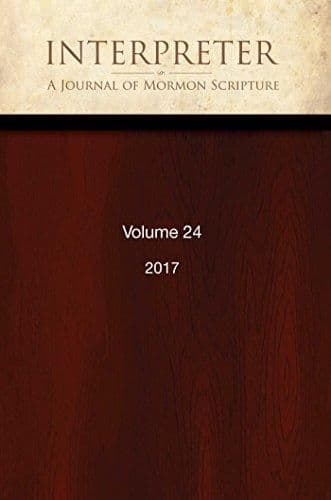Journal
“Thou Art the Fruit of My Loins”: The Interrelated Symbolism and Meanings of the Names Joseph and Ephraim in Ancient Scripture

Title
“Thou Art the Fruit of My Loins”: The Interrelated Symbolism and Meanings of the Names Joseph and Ephraim in Ancient Scripture
Publication Type
Journal Article
Year of Publication
2018
Authors
Bowen, Matthew L. (Primary), and Spendlove, Loren Blake (Primary)
Journal
Interpreter: A Journal of Latter-day Saint Faith and Scholarship
Pagination
273-298
Volume
28
Abstract
To the ancient Israelite ear, the name Ephraim sounded like or connoted “doubly fruitful.” Joseph explains the naming of his son Ephraim in terms of the Lord’s having “caused [him] to be fruitful” (Genesis 41:52). The “fruitfulness” motif in the Joseph narrative cycle (Genesis 37–50) constitutes the culmination of a larger, overarching theme that begins in the creation narrative and is reiterated in the patriarchal narratives. “Fruitfulness,” especially as expressed in the collocation “fruit of [one’s] loins” dominates in the fuller version of Genesis 48 and 50 contained in the Joseph Smith Translation, a version of which Lehi and his successors had upon the brass plates. “Fruit” and “fruitfulness” as a play on the name Ephraim further serve to extend the symbolism and meaning of the name Joseph (“may he [God] add,” “may he increase”) and the etiological meanings given to his name in Genesis 30:23–24). The importance of the interrelated symbolism and meanings of the names Joseph and Ephraim for Book of Mormon writers, who themselves sought the blessings of divine fruitfulness (e.g., Lehi, Nephi, and Jacob), is evident in their use of the fuller version of the Joseph cycle (e.g., in Lehi’s parenesis to his son Joseph in 2 Nephi 3). It is further evident in their use of the prophecies of Isaiah and Zenos’s allegory of the olive tree, both of which utilize (divine) “fruitfulness” imagery in describing the apostasy and restoration of Israel (including the Northern Kingdom or “Ephraim”).
Subject Keywords
Bibliographic Citation
Terms of use
Items in the BMC Archive are made publicly available for non-commercial, private use. Inclusion within the BMC Archive does not imply endorsement. Items do not represent the official views of The Church of Jesus Christ of Latter-day Saints or of Book of Mormon Central.